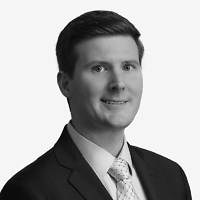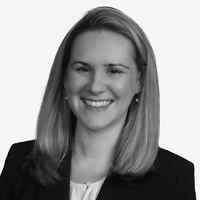Trending publication
Cracking Down on Junk Science: Judicial Conference Committee Approves Amendments to Federal Rule 702
Print PDFThe Judicial Conference Committee on Rules of Practice and Procedure recently voted unanimously to approve two proposed amendments to Federal Rule of Evidence 702, “Testimony by Expert Witnesses.” Rule 702 governs the admissibility of expert testimony at trial. The amendments emphasize the judge’s gatekeeping authority. That is, the amendments reinforce that it is the judge’s role—not the jury’s—to keep junk science out of the courtroom. While steps in the adoption process remain, should the amendments ultimately be approved, they would take effect in December 2023.
Key Takeaways
- The amendments are aimed at curbing inconsistent application of Rule 702. “[I]n a fair number of cases,” the Committee observed, “the courts have found expert testimony admissible even though the proponent has not satisfied the Rule 702(b) and (d) requirements by a preponderance of the evidence—essentially treating these questions as ones of weight rather than admissibility.” The amendments confirm that the judge, not the jury, is the gatekeeper.
- The first amendment clarifies that the party offering an expert opinion must demonstrate to the court that all prerequisites for admissibility have been met by a preponderance of the evidence (“more likely than not”) standard.
- The second amendment requires that the expert’s opinion—not just the methodology—“reflects a reliable application of the principles and methods to the facts of the case.” “If an expert overstates what can be reliably concluded,” the Committee noted, “then the expert’s opinion should be excluded under Rule 702(d).”
First Amendment: “More Likely Than Not” Standard
The first amendment provides (amendment underlined):
“A witness who is qualified as an expert by knowledge, skill, experience, training, or education may testify in the form of an opinion or otherwise if the proponent demonstrates to the court that it is more likely than not that” subparts (a) through (d) have been satisfied.
Rule 702, as currently written, does not articulate the standard federal courts should apply in deciding whether to admit proposed expert opinions. As such, “many courts have held,” according to the Committee, “that the critical questions of the sufficiency of an expert’s basis, and the application of the expert’s methodology, are questions of weight and not admissibility. These rulings are an incorrect application of Rules 702 and 104(a).” The amendment clarifies that the judge must act as gatekeeper to prevent the introduction of junk science. Experts with questionable qualifications or unreliable methodologies should no longer be admitted under the “weight of the evidence” approach.
Second Amendment: Reliable Opinions
The second amendment provides (deletions in brackets and amendment underlined):
“(d) the [expert has reliably applied] expert’s opinion reflects a reliable application of the principles and methods to the facts of the case.”
Under the current version of Rule 702(d), expert opinion may be admitted if, among other things, the expert’s methodology is reliable. The amendment is significant in that the court must now evaluate not only the expert’s methodology, but also the expert’s opinion. According to the Committee, the amendment “emphasize[s] that each expert opinion must stay within the bounds of what can be concluded from a reliable application of the expert’s basis and methodology.” In other words, courts should no longer admit testimony of a proposed expert who lays out a reliable methodology, but who reaches an unsupportable or overstated conclusion.
What’s Next?
The Judicial Conference will now review the amendments, with the Supreme Court to follow. If ultimately approved, the amendments would take effect in December 2023. In the meantime, it will be interesting to see whether federal courts (and perhaps even some state courts) bring their future decisions in line with the proposed amendments, particularly considering the Committee’s commentary.
This advisory was prepared by Michael Leard and Sara Lonks Wong in Nutter’s Product Liability practice group. For more information, please contact Michael, Sara, or your Nutter attorney at 617.439.2000.
This update is for information purposes only and should not be construed as legal advice on any specific facts or circumstances. Under the rules of the Supreme Judicial Court of Massachusetts, this material may be considered as advertising.

